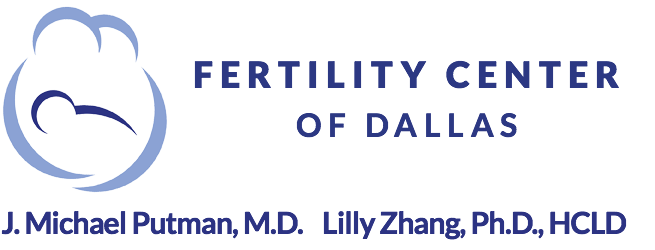
04 May Take Folic Acid for a Healthy Baby
Folic acid is essential throughout pregnancy, especially during the first trimester. This key nutrient supports the growth of a healthy brain, spinal cord, and nervous system and prevents other potential birth defects.
Providing a nourishing environment for a healthy baby is one of the reasons we encourage women to prepare their bodies for pregnancy long before they try to get pregnant. In addition to their own well-being and facilitating a shorter conception window, a well-nourished body supports a baby’s early development during the first trimester – a time when many women aren’t even aware they’re pregnant.
Healthy Folic Acid Levels Minimize the Risk of Birth Defects
Concentrating on a healthy preconception diet is one of the best ways to ensure your body gets what it needs to support your pregnancy from the first minute of conception. Folate is one of the B vitamins (B9) found in the highest concentration in leafy green vegetables and other whole foods. Once we learned how vital folic acid was to early fetal development, synthetic folate, called folic acid, was added to many fortified foods such as breakfast cereals, pasta, and other food products.
It’s important to note that too much folic acid isn’t good for you. If you’re getting ready to start a family, or are already trying to conceive, speak to your doctor about your current diet and whether or not they recommend taking a prenatal vitamin. Most physicians, OBs, and fertility specialists advise patients to take a prenatal supplement while trying to conceive (TTC) to ensure their baby has access to essential vitamins, minerals, and other nutrients from the very start.
Birth defects linked to lack of folic acid
As mentioned above, folic acid is essential to developing a healthy brain and spinal cord. The medical field refers to this as the neural tube, and any defects in this system are referred to as neural tube defects or NTDs.
Getting 400 micrograms of folic acid per day (including the three months after pregnancy while breastfeeding) through a combination of diet and a prenatal supplement helps to protect your baby from NTDs, including the following:
Spina bifida
Without enough folic acid, a baby’s neural tube doesn’t always grow, function, or close properly. Spina bifida occurs when the spinal cord or column doesn’t close all the way. This leaves the spinal cord exposed, or it may even bulge out.
Minor cases of spina bifida can be closed up, while others are more severe and require lifetime management. In addition, a child with spina bifida may experience a range of complications, such as cognitive deficits, bladder and bowel problems, lack of sensation or control below the opening, paralysis, etc.
Anencephaly
Anencephaly is the result of malformations of the brain and skullcap. You may remember that anencephaly was one of the risks of contracting Zika virus in the early stages of pregnancy. Some babies are born without a complete brain which results in severe complications.
Encephalocele
Babies with encephalocele have an incomplete skull that has an opening. When this happens, the brain protrudes through the opening. Some of the most common complications of encephalocele are vision problems, developmental delays, cerebral palsy, and more.
These birth defects occur during the first month of pregnancy when most women don’t know they’re pregnant. Folate is also responsible for healthy DNA, which controls cell and tissue growth. It’s also involved in producing healthy red blood cells and certain amino acids.
Focus on foods with high folate levels
Increased awareness of NTDs and greater access to prenatal care have markedly reduced the number of babies born with NTDs in the United States and elsewhere. While prenatal vitamins are a wise option, your diet is the best way to get folate in the form your body is most ready to assimilate.
Foods with higher folate levels include:
- Leafy green vegetables, such as spinach
- Citrus fruits, such as orange juice
- Beans, peas, and nuts
- Enriched bread, cereals, and other fortified grain products
- Rice
- Pasta
Talk to FCD About Pregnancy Diet & Supplement Recommendations
Are you pursuing fertility treatments or interested in creating a diet and lifestyle that supports a healthy full-term pregnancy? Contact the Fertility Center of Dallas to learn more about how we support our patients’ holistic well-being before, during, and after their pregnancies.






